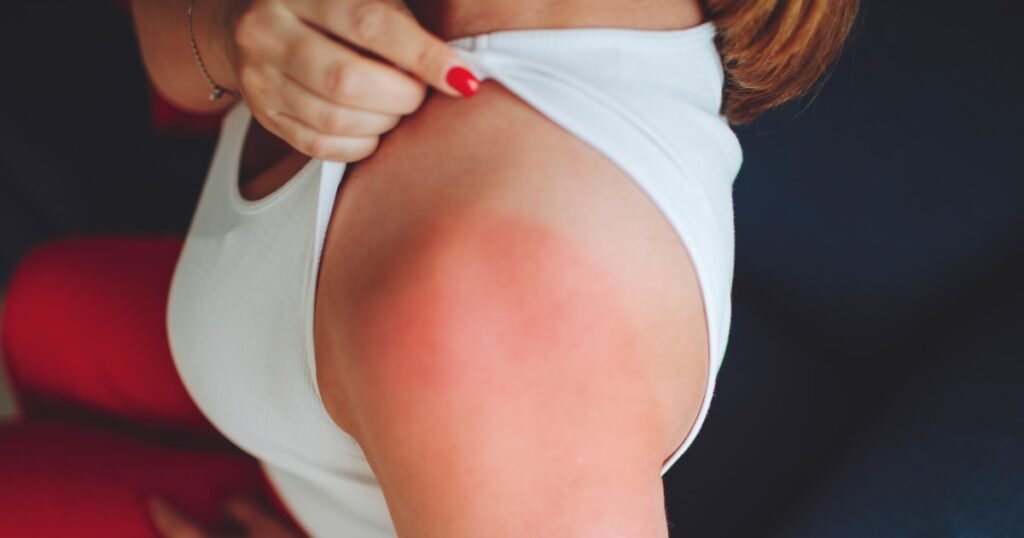Ultimate Guide to Sunburn Relief: Treatments and Prevention Tips
Sunburns can occur even when you’ve taken precautions like applying sunscreen and wearing UV-protective clothing. While some sunburns are mild and merely cause a pink hue, others can be quite severe, leading to pain and blistering. Thankfully, several effective over-the-counter products can help soothe sunburned skin and speed up healing.
Understanding Sunburn Severity
When treating a sunburn, understanding its severity is crucial. According to dermatologists, the treatment varies based on factors such as:
- Severity of the Sunburn: Mild sunburns usually require just moisturizing, while more severe cases—especially those with blistering—may necessitate medical treatment.
- Symptoms: Pay attention to other symptoms like swelling, redness, and the presence of blisters, pus, or fever.
For mild to moderate sunburns:
- Apply thick moisturizers to the affected areas.
- Stay hydrated by drinking plenty of water.
- Consider taking ibuprofen to reduce pain and inflammation.
If you experience severe symptoms or blistering, see a doctor for advanced treatments like prescription creams.
Key Ingredients for Sunburn Relief
While selecting a treatment, consider the following ingredients:
- Aloe Vera: Known for its soothing and hydrating properties.
- Soy: Helps in calming irritated skin.
- Calamine: Provides a cooling effect.
Avoid products containing fragrances and alcohols, as they can irritate sensitive skin.
Recommended Products for Sunburn Relief
Here’s a breakdown of dermatologist-recommended sunburn treatments:
Aloe Vera Gel and Lotions
-
Fruit of the Earth Aloe Vera 100% Gel
- Pros: Dries clear, non-sticky, and fragrance-free.
- This gel is recommended for its soothing properties and is suitable for both face and body.
- Sun Bum Cool Down Aloe Vera Lotion
- Pros: Soothes and hydrates, with vitamin E and cocoa butter for additional moisture.
- This lotion has a lightweight, non-greasy feel.
Moisturizers
-
Cetaphil Soothing Gel Cream with Aloe
- Pros: Thick texture, fragrance-free, and non-comedogenic.
- Ideal for dry, inflamed skin, helping to soothe and hydrate.
- CeraVe Moisturizing Cream
- Pros: Restores skin barrier and hydrates peeling skin.
- Contains ceramides and hyaluronic acid, making it effective for recovery.
Spray Moisturizers
- Vaseline Intensive Care Aloe Soothe Spray
- Pros: Easy application, hydrates well, and has a non-greasy finish.
- Lightweight, making it travel-friendly for beach trips.
Anti-Itch Creams
- Cortizone 10 Maximum Strength Anti-Itch Cream with Aloe
- Pros: Relieves itching and is fragrance-free.
- Contains 1% hydrocortisone, the highest allowed concentration in over-the-counter products.
Bandages for Blisters
-
Amazon Basic Care Advanced Fast Healing Hydrocolloid Gel Bandages
- Pros: Water-resistant, multi-day wear, promotes healing.
- Effective for covering blisters to reduce scarring.
- Spenco’s 2nd Skin Moist Burn Pads
- Pros: Cools and soothes while keeping blistered skin clean.
- High-water content assists in hydration.
Ointments
- Aquaphor Healing Ointment
- Pros: Seals moisture into the skin barrier and helps prevent infection.
- Ideal for open blisters, as it keeps the area protected.
When to Seek Medical Attention
If your sunburn results in severe pain, blistering, or symptoms like fever and chills, consulting a healthcare professional is critical. Blisters should not be popped, as this can lead to infections and scarring.
Preventive Measures to Avoid Sunburns
While the occasional sunburn can happen, preventing them is crucial for long-term skin health. Here are some effective tips:
- Apply Sunscreen Daily: Use broad-spectrum sunscreen with at least SPF 30, reapplying every two hours, especially after swimming or sweating.
- Wear Protective Clothing: Invest in UPF clothing, wide-brimmed hats, and sunglasses for added protection.
- Limit Sun Exposure: Avoid being outdoors during peak UV hours from 10 a.m. to 3 p.m., seeking shade whenever possible.
Frequently Asked Questions
What is a sunburn?
A sunburn is the skin’s inflammatory response to excessive UV radiation exposure, damaging the DNA in skin cells.
Are some people more prone to sunburns?
Yes, fair-skinned individuals are generally at a higher risk, but anyone can suffer from sunburn regardless of skin type.
What should you avoid while treating sunburns?
Avoid prolonged UV exposure, home remedies that can irritate, and do not pick at blisters or peeling skin.
By following these recommendations and using the right products, you can effectively manage sunburns and promote healing. Always prioritize prevention to keep your skin healthy and safe from long-term damage.


